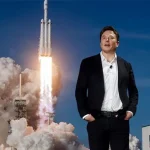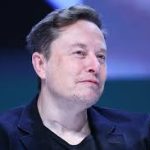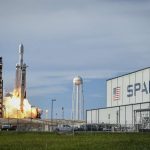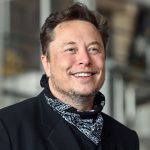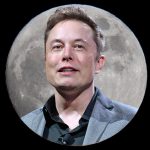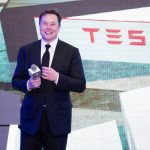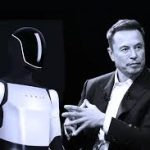Musk Provides $1 Million in Medical Equipment – A Helping Hand for Remote Hospitals?

Musk Provides $1 Million in Medical Equipment – A Helping Hand for Remote Hospitals?
1. A Gesture of Generosity: Musk’s Latest Contribution
In an unexpected and impactful move, tech billionaire Elon Musk has donated $1 million worth of state-of-the-art medical equipment to underfunded and remote hospitals in various parts of the world. The announcement, made through his company’s social media channels, has caught the attention of health professionals, aid organizations, and the general public alike. While Musk is widely known for his role in revolutionizing the electric vehicle industry through Tesla and exploring outer space with SpaceX, this donation highlights a new side of the entrepreneur: a philanthropist who is focusing on healthcare access and equity.
The donated medical equipment includes diagnostic tools, surgical instruments, ventilators, and critical care machinery. In a statement released alongside the donation announcement, Musk expressed his belief that all people, regardless of location or socio-economic status, should have access to quality healthcare. “Healthcare is a basic human right, and remote hospitals often lack the tools necessary to provide adequate care,” Musk said. “I hope this contribution can make a difference in saving lives and improving medical outcomes in underserved communities.”
This charitable act represents a notable shift in Musk’s public profile. Over the years, his various ventures have attracted both admiration and criticism, with his actions frequently sparking controversy. From his vocal stances on government regulation to his tweets about cryptocurrency, Musk has made waves in both the tech world and the broader cultural landscape. However, this donation brings him into the realm of social good in a way that has garnered widespread positive feedback.
Despite the charitable nature of his donation, many have raised the question of whether this $1 million is a mere drop in the ocean, given the immense healthcare needs faced by remote and rural hospitals worldwide. While the donation is significant, it highlights a broader issue—the ongoing struggle for equitable healthcare access in underdeveloped and underserved regions.
2. The State of Healthcare in Remote Areas: Challenges and Disparities
The donation from Musk comes at a time when the world is witnessing an ongoing healthcare crisis, particularly in rural and remote regions. According to reports from the World Health Organization (WHO) and other global health agencies, the disparity between urban and rural healthcare infrastructure is alarming. In many parts of the world, particularly in low-income countries, hospitals in remote areas struggle with limited access to basic medical supplies, outdated equipment, and a shortage of trained medical staff.
In these regions, healthcare systems often face logistical challenges, such as unreliable supply chains, inadequate transportation for medical personnel and patients, and lack of financial resources to procure necessary medical equipment. The COVID-19 pandemic further exacerbated these issues, with remote hospitals being particularly vulnerable due to their lack of intensive care units, ventilators, and other essential equipment.
Furthermore, the healthcare gap is particularly evident in the global South, where economic instability, war, and political unrest have significantly hindered the development of healthcare systems. Rural hospitals often operate without access to advanced diagnostic tools, leaving doctors and nurses to rely on outdated equipment or improvisation. This lack of resources results in suboptimal care and often prevents hospitals from responding effectively to medical emergencies.
The donation from Musk, while a step in the right direction, is but a small contribution to addressing these systemic issues. While $1 million in medical equipment can certainly make a significant impact at the local level, it will take far more sustained efforts from governments, international organizations, and private philanthropists to close the healthcare gap between urban and rural areas.
Healthcare advocates have praised Musk’s donation as a symbol of the private sector’s potential role in addressing these disparities. However, they also emphasize that private donations should be complemented by robust public policy and long-term infrastructure investment to create lasting change.
3. Musk’s Impact on Healthcare: A Look at the Broader Picture
Elon Musk’s $1 million donation may seem like a modest amount when considering the scale of global healthcare needs. However, his involvement in this sector is not entirely new. Through his companies, Musk has had an indirect influence on healthcare innovation, particularly in the realms of technology and space exploration.
For instance, SpaceX has worked on developing life-saving technologies for astronauts, including medical devices that can be used in extreme environments. Musk’s other ventures, such as Neuralink, which focuses on developing brain-computer interfaces, also have the potential to revolutionize healthcare, particularly in the areas of neurological diseases and disabilities. His investments in Tesla, known for its cutting-edge battery technology, could one day play a role in improving medical devices by providing more efficient and longer-lasting energy solutions.
In this context, the donation of medical equipment should be seen as part of a broader pattern of Musk’s involvement in areas that intersect with healthcare. His wealth and access to cutting-edge technologies position him uniquely to make meaningful contributions to solving complex problems in medical and scientific fields. Musk’s track record in innovation lends credibility to the idea that he could play a pivotal role in shaping the future of healthcare, particularly by pushing for more technological integration and accessibility in remote and rural areas.
That being said, Musk’s philanthropic approach has often been questioned. While he has made significant donations to causes such as clean energy, educational initiatives, and disaster relief, some critics argue that his contributions lack the long-term strategy and oversight needed to create systemic change. The $1 million donation to remote hospitals, although a welcome gesture, raises questions about whether Musk’s philanthropic activities are more reactive than proactive. Can one-off donations truly address the broader systemic issues in healthcare, or do they only serve to placate the public’s demands for corporate responsibility?
4. Looking Forward: The Future of Healthcare Philanthropy
Musk’s latest donation signals an important shift in the way some of the world’s wealthiest individuals engage with global social issues. While traditional philanthropic efforts have often focused on funding large-scale medical research or major global initiatives like vaccines, Musk’s focus on directly supplying medical equipment to hospitals in need is a more targeted approach. It recognizes the urgent needs of local healthcare systems and attempts to alleviate immediate shortfalls.
However, philanthropy in healthcare must go beyond surface-level donations. The $1 million donation from Musk may help alleviate immediate resource shortages, but it also brings to light the deeper structural challenges that remote hospitals face. Long-term solutions will require sustainable funding, support for healthcare workers, and systemic changes in health policy.
The future of healthcare philanthropy, especially in the wake of growing global inequality, should include comprehensive strategies that encompass not only short-term aid but also long-term investments in healthcare infrastructure. This includes addressing workforce shortages, improving education for medical professionals in rural areas, and enhancing the global supply chain for essential medical goods.
Furthermore, the focus on healthcare equity, which Musk’s donation touches upon, must be expanded to address a broader set of social determinants of health. These include access to clean water, education, housing, and food security. The COVID-19 pandemic has shown how interconnected healthcare is with other aspects of society, and addressing disparities in these areas will require a coordinated, multi-sectoral approach.
In conclusion, Musk’s $1 million donation to remote hospitals provides a necessary boost to the global conversation about healthcare equity, but it is only the beginning. While the gesture is commendable, it is essential for Musk and others in his position to continue building on these efforts, working not just to donate equipment, but to advocate for systemic change. As more wealthy individuals and corporations embrace the idea of social responsibility, we may begin to see a shift in the way healthcare challenges are approached. But, ultimately, it will take a collective, sustained effort to build healthcare systems that serve all people—regardless of where they live.
